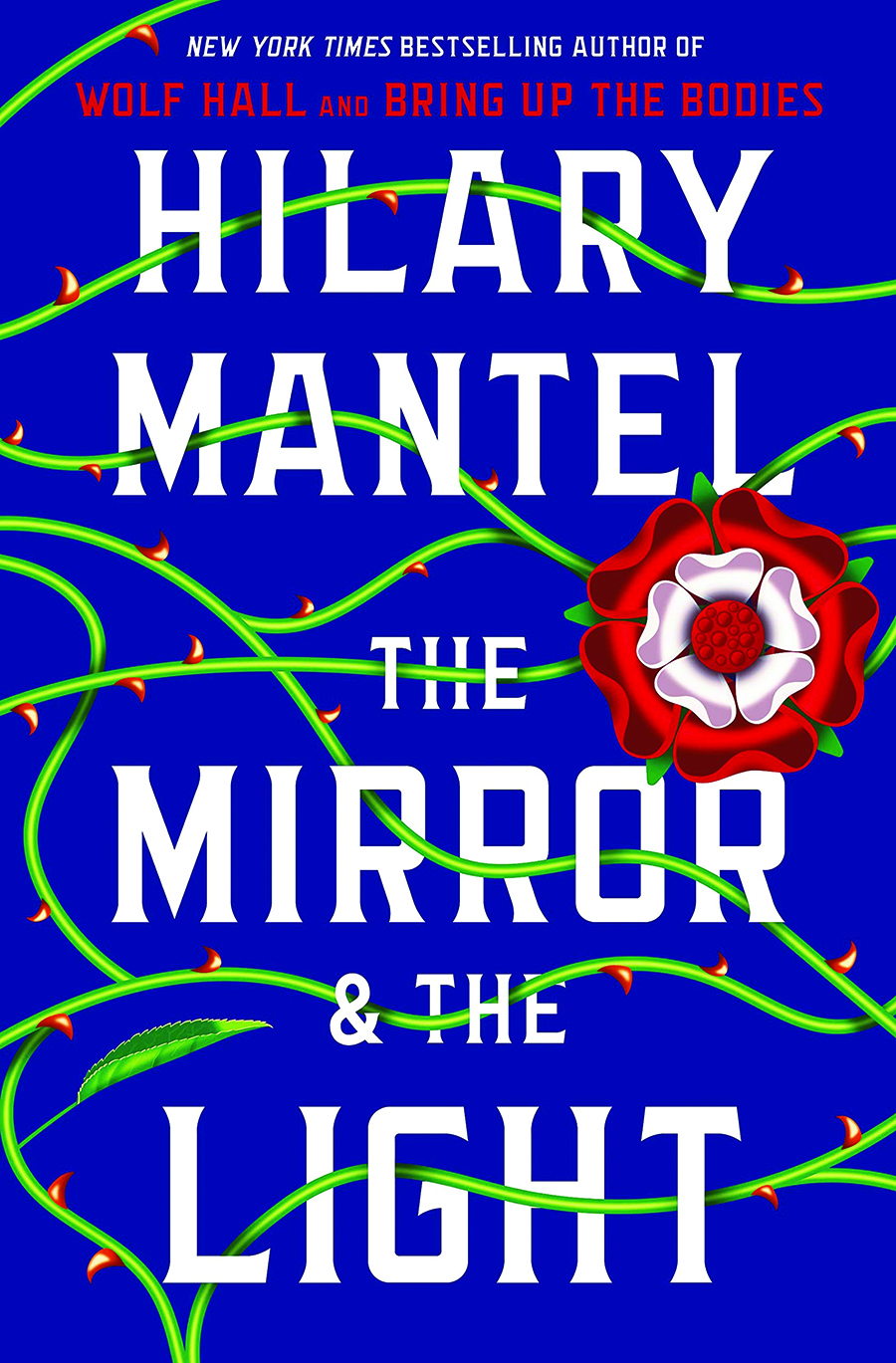“Somewhere — or Nowhere perhaps — there is a society ruled by philosophers. They have clean hands and pure hearts. But even in the metropolis of light there are middens and manure-heaps, swarming with flies. Even in the republic of virtue you need a man who will shovel the shit, and somewhere it is written that Cromwell is his name.”
This is how we find Thomas Cromwell in the final entry of Hilary Mantel’s brilliant Wolf Hall trilogy, The Mirror and the Light — a man with his hands dirty, surrounded by theologians and royalty, maneuvering his way up in the world. Cromwell has gone down in history as the mastermind behind King Henry VIII’s schemes and the persecutor of the saintly Thomas More, but Mantel has set out to upend this narrative. More than 2,000 pages and 11 years later, she has finally finished making her point.

Mantel’s Cromwell is new money, the only upwardly mobile man in still-feudal England, and the lords and ladies around him won’t let him forget it. He’s used his wits to get close to the king and make himself indispensable to the functioning of the government. Cromwell is the sort of man who has an inborn knack for “negotiating the necessary falsities” of life as a courtier — he is able to speak honestly and dishonestly at the same time; he knows how to flatter and cajole. But he is also a man of conviction: In addition to his own position, he wants to advance the cause of the Protestant Reformation in England, to build a modern country that will leave the corrupt and superstitious world of Rome behind.
The Mirror and the Light begins in the late 1530s, which prove to be a hell of a time for our man. Cromwell’s tireless service on behalf of the king has transformed this blacksmith’s son from nowhere into a lord. His wallet is heavy, but so is his conscience. Things are falling apart. Europe is divided between Catholics and Protestants. England is divided, and violence threatens to break out over religion and taxation. The English royal family is divided, with Henry’s relatives trying to gin up a crusade against their cousin over his break from the Roman Catholic Church. Meanwhile, money is divided up. The crown has expropriated England’s monasteries and abbeys and is busy, under Cromwell’s direction, putting their resources to use for England.
Ever Henry’s faithful servant, Cromwell has just gotten the king out of his second marriage, to Anne Boleyn, by exposing the queen’s alleged adultery. A French swordsman relieves her of her head. It’s somewhat unclear to history whether all the adultery charges against Boleyn were true or merely a fabricated pretext for the beheading. What is clear is that arranging the charges was yet another job for Cromwell. The king will enter into three more marriages before Cromwell’s story ends with (500-year-old spoiler alert) his own beheading.
Mantel’s achievement is the emotional force with which she connects readers to the distant world of Tudor England. Her history is human. Ten years ago, if I had said “Cromwell,” people would have assumed I meant Oliver Cromwell, Thomas’s distant descendant who ruled England as dictator from 1653 to 1658. But Mantel has made Thomas the most famous Cromwell — and the new stock image for Henry VIII’s time. Her Cromwell saga has already been made into a play and a miniseries, and both earlier books won the Man Booker Prize. The Mirror and the Light is at least as good as its prequels. As someone says to Cromwell in the novel, a prince cannot “excuse the past, just for being over and done.” A historical novelist can, but it’s much better that she does not.
Mantel is an ex-Catholic, and she does not disguise her contempt for the institutional church or her support for the men, such as Cromwell, who would pull Henry away from Rome. Often, the shots she takes work to great comic effect. One cardinal is described as having “spoken of God as if He were a distant policy adviser from whom he heard quarterly: gnomic in his pronouncements, sometimes forgetful, but worth a retainer on account of his experience.” She also likes to have characters rehearse Martin Luther’s theses in lurid and jarring ways: “We cannot agree on the nature of Christ’s body, what is fact and what is allegory, what is human and what is divine. Can God be baked into bread? When we consume the host, why do we not hear the cracking of his bones? Is he still God, when he churns in our guts? And what if a dog eats him, is he still God then?”
But The Mirror and the Light is a piece of modern literature before it is a piece of Reformation literature. And part of its genius is that Cromwell can feel as though he belongs better in the modern age than in the 16th century. As a slightly self-pitying Cromwell thinks to himself during his final days in the Tower of London, “Perhaps some people will say I have died for the gospel, as More died for the Pope. But most will not think me a martyr for anything, except the great cause of getting on in life.” Perhaps that is a great cause. What Mantel has taken all these years to demonstrate is that for a man such as Cromwell to thrive, for modern meritocratic man to make it in Europe, the old order was always going to have to be broken up.
Nicholas Clairmont is an associate editor at Arc Digital and a regular contributor to the Washington Examiner.

